Minister directs schools to stop public display of individual results
"For now, in keeping with the Data Protection and Privacy Act Cap 97 and its regulations, schools and institutions of learning should desist from all forms of public display of individual learner academic results."
The First Lady and Minister of Education & Sports, Janet Museveni (2ndR), receives the UCE exam results from UNEB chairperson Prof. Celestino Obua (2ndL) as UNEB executive director Dan Nokrach Odongo (L) and higher education state minister John Chrysestom Muyingo 9R) look on, at State House Nakasero in Kampala on February 11, 2025. (Credit: Miriam Namutebi)
By Joseph Kizza
Journalists @New Vision
_____________________
2024 UCE RESULTS
📍 State House, Nakasero
The two sets of results of the 2024 Uganda Certificate of Education (UCE) exams were released Tuesday (February 11), with the successfully qualified pioneer candidates of the new competency-based curriculum hailed for having their "places sealed in history".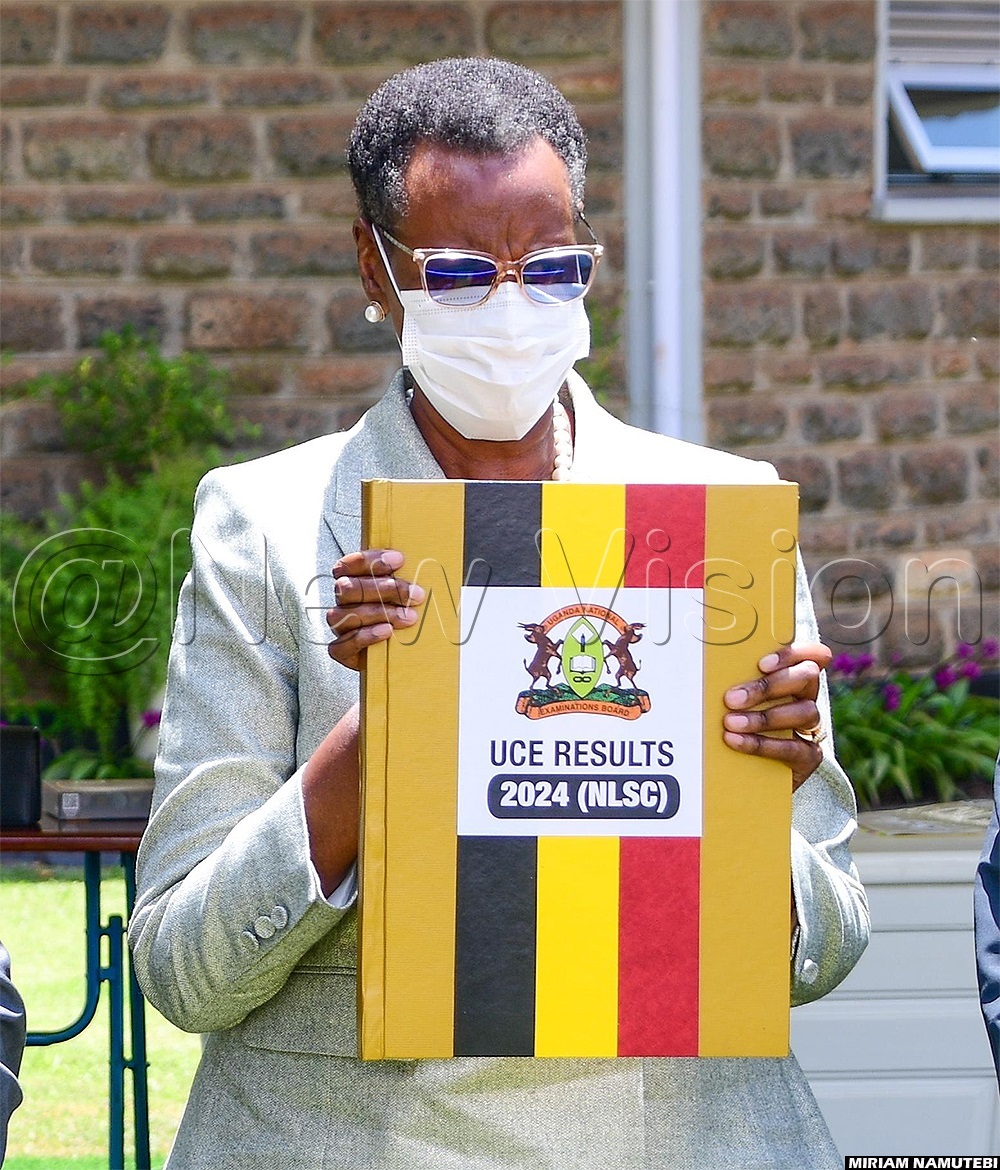
This time, it was a double release that included the results for the first cohort of candidates of the new lower secondary curriculum (NLSC) and the results for the transitional candidates — the last group of candidates to sit the old curriculum final exam.
The function took place at State House Nakasero in Uganda's capital Kampala.
Just after 1pm local time, the First Lady and Minister of Education and Sports, Janet Museveni, concluded her speech by officially releasing the results.
The transition exam was a last-chance, one-off offer to candidates who — for various reasons — missed the 2023 UCE exams or sat but did not make the cut (ungraded).
"For those learners who yet again did not avail themselves for this last opportunity at UCE examination under the previous lower secondary curriculum, I encourage them to look out for other opportunities for progression in educational training through the vocational pathway," said the education minister.
"You do not have to fall out of formal education at all."
▪️ 2024 PLE results show improved general performance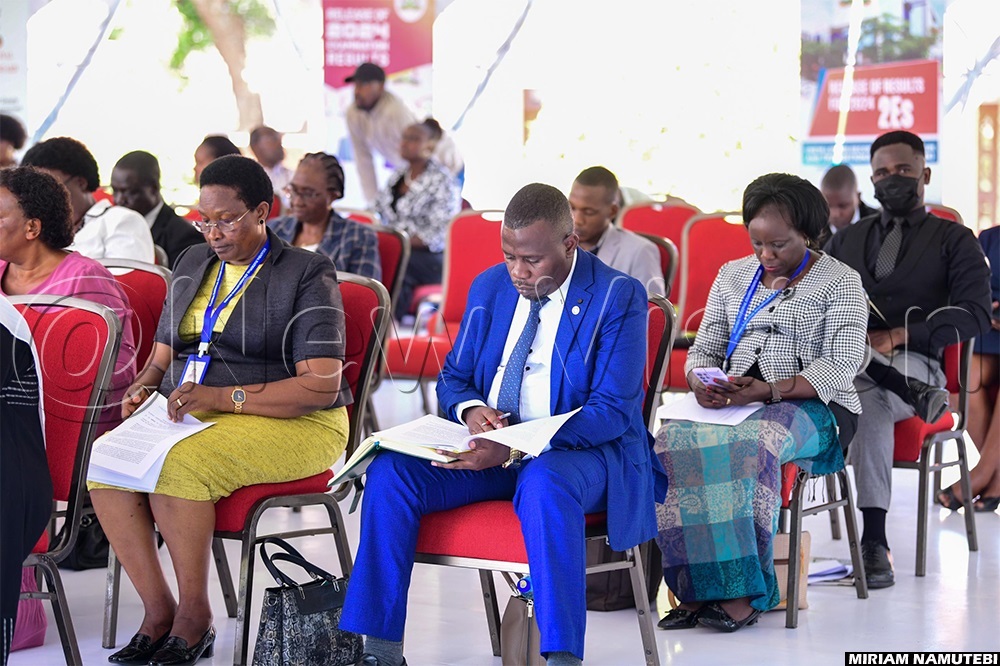
'New curriculum best for our country'
The new competency-based curriculum was rolled in 2020 with an "unsmooth start", thanks to disruptions such as the COVID-19 pandemic, but according to Mrs Museveni, "we remained steadfast" in implementing the new curriculum "because it was designed to develop competencies in all the areas of learning".
She said the curriculum "was the best for our country and our plans for the future using the head, the hands and the heart".
The minister said the products of the new curriculum is what Uganda needs because they "will contribute greatly to the realization of our national vision, which focuses on transformation from peasantry to a modern and prosperous Uganda".
Combining the scores of continuous assessment of learners' achievement with the end of cycle scores under the new curriculum learning has "reduced the impact of just a one shot end-of-cycle examination" and now "gives a holistic picture of the learner's achievement".
Mrs Museveni urged teachers to ensure the integrity of the continuous assessment scores submitted to the Uganda National Examinations Board (UNEB).
"Validity and reliability must be observed in generating these continuous assessement scores so that they reflect the true levels of achievement by the learner."
The minister urged UNEB to institute a "robust training, monitoring and evaluation system to ensure that schools comply with the guidelines issued on continuous assessment and project to work assessment".
She also urged the nation to "accept this change, which is for the better", referencing the reforms.
▪️ Understanding the new competency-based curriculum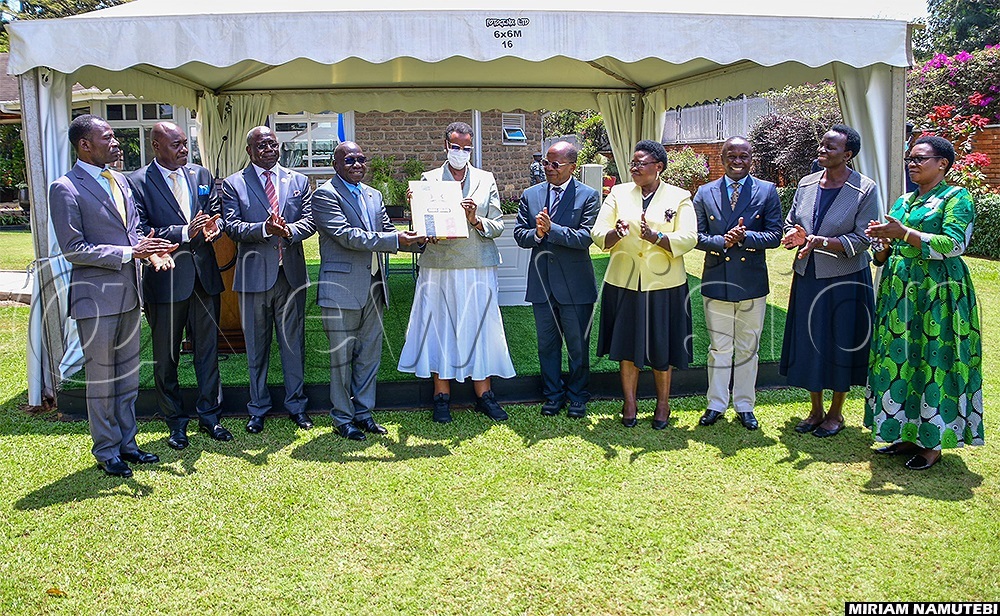
Data protection
Importantly, the First Lady underlined the importance of protecting the personal data of children as by law.
"UNEB has been informed by the Personal Data Protection Office that "publicly exposing the names, photographs and individual grades of learners on boards or other publicly accessible platforms exposes such learners to harassment, stigma and emotional distress"."
Schools have now been advised to use alternative methods of sharing examination outcomes without compromising students' privacy by way of disclosing personal learner information or data.
"Therefore, I now task UNEB and all other education and assessment agencies under the Ministry of Education and Sports, together with the permanent secretaries of the Ministry of Education and Sports with liaising with the Data Protection and Privacy Office for further appreciation of this guidance on how to fully comply with the Data Protection and Privacy Act and its regulations in the management of assessment and examination results.
"Thereafter, the permanent secretary shall formally communicate to all education institutions of learning by way of a circular on how to always ensure privacy of individual learners' results.
"For now, in keeping with the Data Protection and Privacy Act Cap 97 and its regulations, schools and institutions of learning should desist from all forms of public display of individual learner academic results."
Senior 5 to begin on March 3
The selection exercise for Senior Five will take place on February 20 and February 21.
Then, the first term reporting date for Senior Five is March 3. It will be a Monday.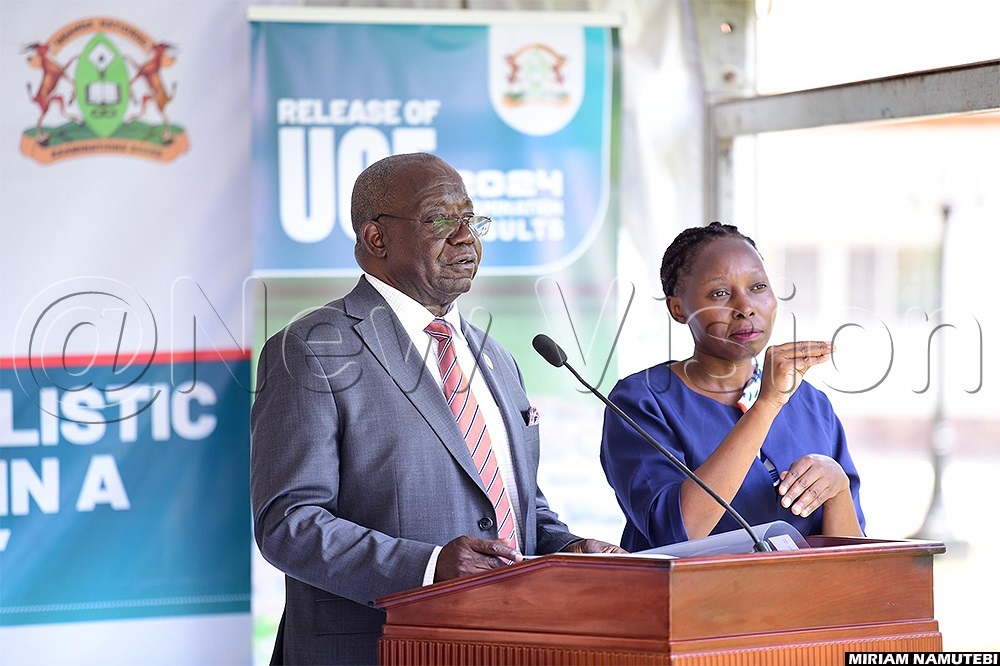
Earlier, before the education minister was invited to deliver her remarks, UNEB executive director Dan Nokrach Odongo (pictured above) started off by delivering the release statement for the transition examination, which was based on the now defunct UCE curriculum.
Of the 10,141 candidates from 1,028 centres that registered for this exam, 4,369 (43.1%) were males and 5,373 (52.9%) were females.
The majority of those who registered (8,929) studied in non-USE schools while the other 813 benefitted from the the USE (Universal Secondary School) programme.
Worryingly, Odongo reported that 399 did not sit this last-chance exam, one of whom was among the 44 special needs candidates.
'Unique format'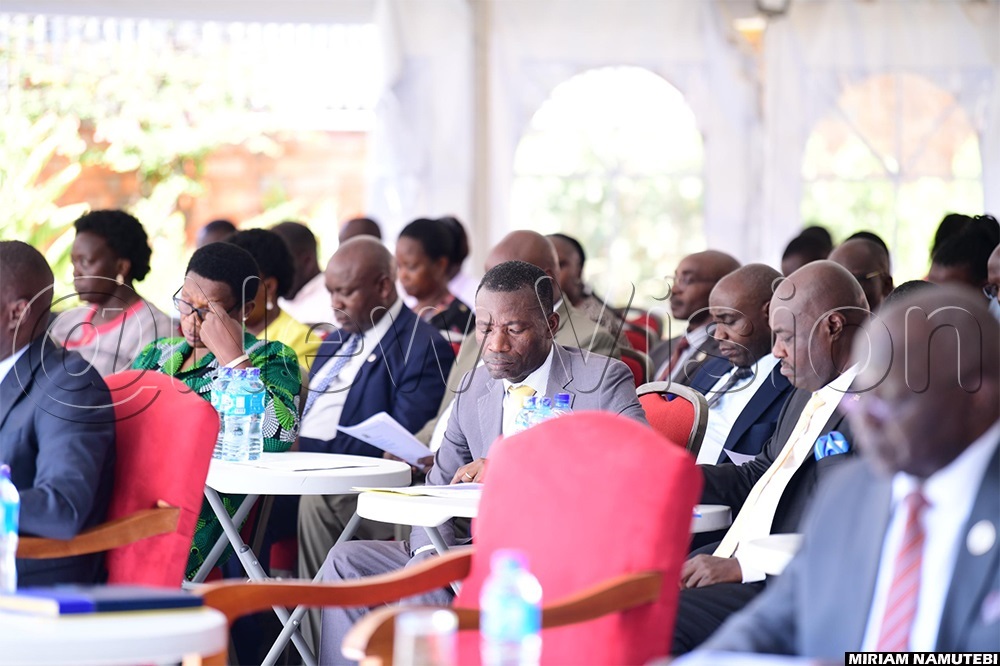
Odongo then turned to the new (competency-based) curriculum release statement, expressing UNEB's "excitement" to have "finally got to this point".
He said the national exams body had to build capacity of its staff to facilitate the "fundamental shift" in assessment of the new curriculum.
The executive director said UNEB also developed a format for students' identification "to facilitate registration of Senior Three and Senior Four learners".
A unique format of numbers to identify learners in schools without UNEB centres was also developed.
"This was then followed by developing assessment tools, guidelines, training materials, capacity building for teachers as item writers and scorers, benchmarking to pick best practices, and sensitization of key education stakeholders," said Odongo.
A total of 359,417 candidates were registered as the poineer candidates for the examination, of which 177,133 (49-3%) were males and 182,284 (50.7%) were females.
Of the registered candidates, 136,785 (38.1%) were beneficiaries of the USE programme, and 222,632 (61.9%) were non-USE.
For candidates who sat the exam behind bars, all but one of the 28 that registered at Luzira Prison in Kampala showed up, with all of them qualifying for the UCE certificate.
At Mbarara Main Prison Inmates' Secondary School in Mbarara city, all the 11 candidates who registered for the exam sat and also qualified for the UCE certificate.
The overall results showed that 350,146 (98.05%) of the candidates who sat qualified for the UCE certificate.
Highlighting the challenges of implementing the new skills-based curriculum, Odongo said many rural and private schools lack the required science laboratories and workshops to enable learners create new knowledge through self-learning.
He said these schools also have inadequate science teachers.
▪️ 'Equip schools to implement new curriculum'
Malpractices reduce
On the brighter side, Odongo spoke of the "very welcome reduction in cases of malpractice".
This time, 64 cases involving suspected 984 candidates have been flagged, which is a drop from the 3,000 suspects in the 2023 final exam.
"The cases reported are mostly in the science practical papers, with Physics being most affected," said the executive director.
'Good curriculum'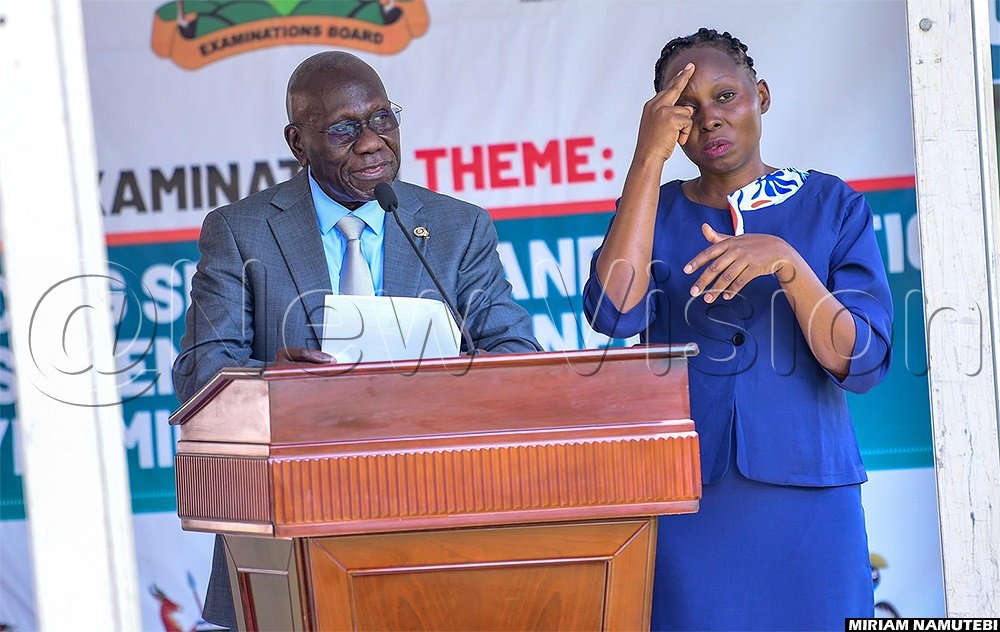
Last year's UCE was themed around embracing security and holistic assessment of learners in a dynamic environment.
UNEB chairperson Prof. Celestino Obua (pictured immediately above) said that while they had to contend with some skepticism from sections of the public over the new curriculum, UNEB's engagements with teachers, learners and parents emboldened the board's confidence that "this is a good curriculum".
"The products of the new curriculum have more confidence, can communicate better, have developed the skills to do research and projects in various areas and have learnt how to learn," he said.
With a new lower secondary curriculum in place, adjustments had to be made at the higher secondary level (A'Level) for smooth transition.
Guided by the education minister, the National Curriculum Development Centre (NCDC) made "substantial changes" to the UACE curriculum.
Meanwhile, among the reforms is how the achievement levels are reported.
Out with the stanine system of 1 to 9 (distinctions, credits, pass and fail) and in with letter grades (A, B, C, D and E).
Additionally, what used to be called a result slip is now called a transcript (just like as at university).
So why did UNEB turn to the letter grades format?
One, the exams body felt that the transcript or certificate must be simple for everyone to "easily understand".
Two, the board also reasoned that the descriptors, which are the explanations of the meaning of the grades, should be "positive on what the holder of the certificate can do".
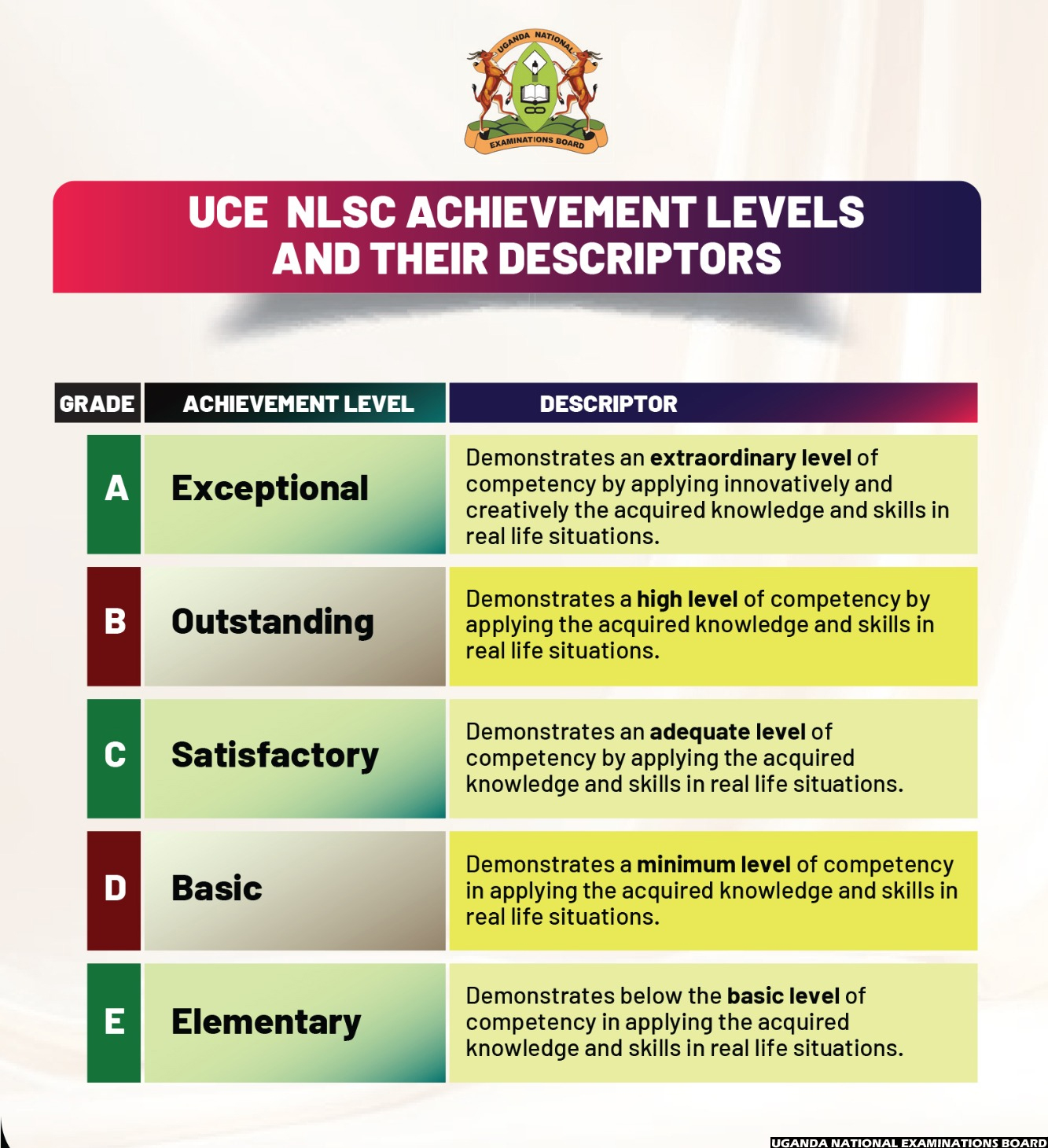
UNEB gets ISO certification
Speaking of certificates, Obua announced that UNEB has received the coveted ISO 9001: 2015 certificate.
The positive news means that the exams body's quality assurance procedures meet international standards.
The ISO 9001 standard is developed by the International Organization for Standardization.
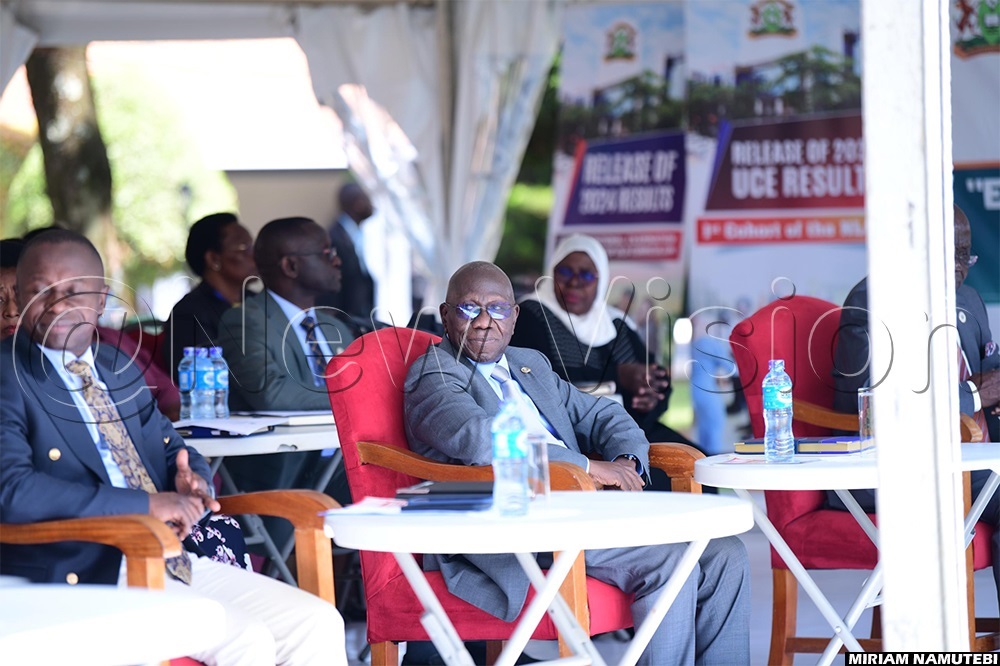
_________________________________
📲 How to access results
Now that the results have been released, the public — including parents and candidates — can now access the 2024 UCE results via SMS on their mobile phones (telecom charges apply).
▪️ Type UCE [leave a space], type full index number
▪️ Send to 6600
Note that the index numbers for the transitional candidates end with 'T'. For example U0000/001T.
The index numbers for the new curriculum candidates do not have a 'T' at the end.
